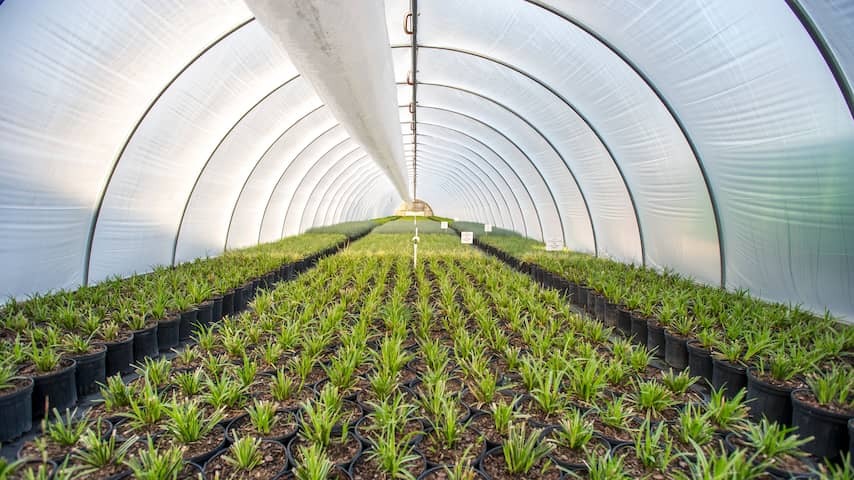
Failing Your Final Exam Doesn’t Have to Be a Disaster
Approximately one in ten final exam candidates heard this week that they had failed. But that really doesn’t have to be the end of the world, as proven by three former failures NU.nl spoke with. Like Luuk van Ingen, who failed and deliberately didn’t retake the exam. Classmates were already looking forward to living on their own and being done with high school. “But I wasn’t ready for that at all,” he says. In 2008, he repeated his entire havo 5 year. He ended up with a much better grade list.
Rianne van der Stelt also didn’t pass her vwo exam the first time. But she didn’t really know what she wanted to study yet. In the new year, she discovered that she had a passion for mathematics. “If I hadn’t failed the first time, I would have just chosen a study,” she says.
Broccoli or Cauliflower from a 3D Printer Gives People Back the Pleasure of Eating
Having a bowl of pureed food in front of you at every meal. For people with chewing or swallowing problems, it is daily fare. A 3D printer could just be a solution. At the Walcheren healthcare institution Amarijn, they have been working on a pilot for using 3D-printed food at various locations in Zeeland since April.
“We were looking for a way to easily offer food to people with chewing and swallowing problems. It is important that the food also looks appetizing to them,” says Amarijn project leader Kristy Donze.
Amarijn doesn’t ‘print’ the food – think broccoli, cauliflower or beetroot – itself. That is done by the food production company Gastronology. Chef Eugène Swalen explains how, for example, a normal broccoli is converted into a puree that the 3D printer can use. “The food is pressed through a filter via a pipe. This leaves you with a puree with pieces of 1 millimeter in size.”
Maybe We Will Drink Seawater in the Future
In Zeeland and Brabant, people are trying to take a new step to convert salt water into drinking water. A test factory will be built at the Bergse Diepsluis in Zeeland to make drinking water from the Oosterschelde water. It is a test location for a drinking water factory, which will later be built somewhere near Bergen op Zoom.
Rob van Dongen, director of drinking water company Brabant Water, calls this “an important step” for converting salt water into clean drinking water. The coming years will mainly be dedicated to carrying out tests.
In the spring of 2026, the drinking water company hopes to be able to extract the first water from the Oosterschelde. “If we manage to produce cost-effectively, we will strike an incredible blow for the drinking water supply in the Netherlands,” Van Dongen tells PZC.
Some plants save themselves better in certain circumstances than others. Think, for example, of cacti that have adapted to be able to go without water for a long time. Kira Tiedge, lecturer in Plant Functional Genetics and Genomics at the University of Groningen, is researching how to make crops self-sufficient.
“Plants have all kinds of ways of communicating with their environment by producing specific substances,” says Tiedge. The largest and most interesting group of such substances are called terpenes. Plants use these terpenes in different situations. Think of attracting insects for pollination or attracting certain soil bacteria.
The aim of this research is to understand what makes the successful plant species so successful. If you know this, the idea is that a seed breeding company (which focuses on improving and developing plant varieties) can select these specific properties. “We help such a company to search more specifically for the most robust species that can produce useful substances,” says Tiedge.